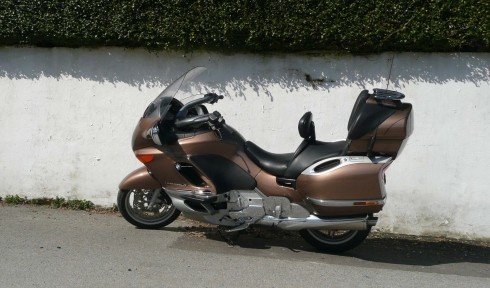It means self-employed riders who pay 40% tax can save the same
percentage on the price of a new bike by getting it wiped off their tax
bill.
That brings the cost of a Honda Fireblade down from £9221 to £5532.
John Shaw of accounting firm Bentleys said: “Motorcycles are no
longer treated for tax purposes like cars but as plant and equipment.
This has a significant affect on the amount of tax relief you can claim
when you buy a motorcycle for use in your business.
“Company cars are now limited to a 20% or 10% annual tax write down
unless they have a carbon footprint below 110g/km, in which case you
may qualify for a 100% allowance.
“The same criteria no longer apply to motorcycles. Whatever their
CO2 emission, 100% of the cost is potentially available as a tax write
off in the year of purchase.
“The change in tax status does seem to open up tax planning
opportunities to business owners who can justify the use of a
motorcycle in their business. If you could write off the cost of a
£10,000 machine and you were a 40% tax payer, you would possibly carve
£4,000 off your tax bill.”
Sean Byrne, tax consultant for accounting firm Haslers, said:
“Effectively the Finance Act has changed the definition of a car.
Whereas before it included motorcycles, now motorcycles are plant and
machinery.”
Self-employed riders buying a bike solely for business use can
deduct 100% of its cost from their taxable profits by claiming it as a
capital allowance on their tax return, according to Bentleys. Whatever
they would usually pay in income tax on that sum is then wiped off
their tax bill. So if they pay 40% tax, they will make a tax saving
equivalent to 40% of the cost of the bike.
Riders who want to use the bike outside work can claim a percentage
of its cost as a capital allowance. That percentage is determined by
how much business use the bike will see. So if 50% of use will be for
business and 50% for pleasure, half its cost is deductable. The saving
for a 40% tax payer would then be 20% of the bike’s price.
According to Bentleys, there’s nothing to stop riders getting the
tax break on a new bike every year. But each time the bike was replaced
the value of the old one would have to be added to taxable profits. So
if a rider sold an old Fireblade for £5000 and bought a new one for
£9221, the net sum deductable would be the difference between the two,
or £4221. The potential saving would then be 40% of that, or £1688.
The new rules apply only to motorcycles purchased after April 6,
2009. Total capital allowances must be within £50,000 in order to claim
the tax write-off, according to Byrne.


